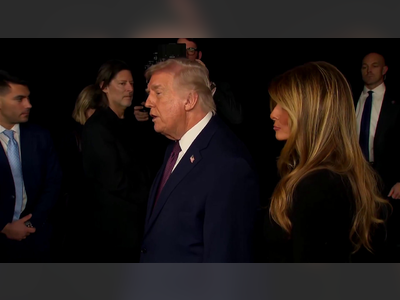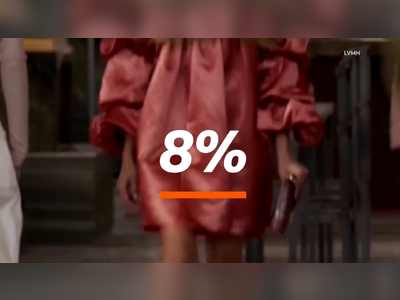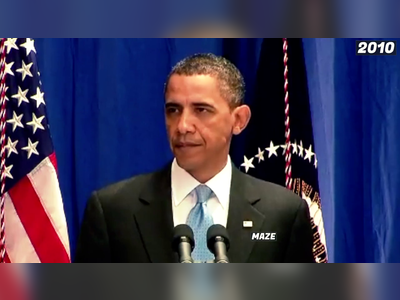US House Votes to Ban TikTok Over National Security Concerns
The United States House of Representatives has passed a bill that could lead to the ban of the popular social media app TikTok within the country.
In a rare display of bipartisanship, the lower chamber of Congress, which is typically divided along party lines, approved the bill with substantial support, garnering 352 votes in favor and 65 against. The legislation mandates the Chinese owner of the social platform, ByteDance, to sell its US operation with 170 million users to an American company within six months of the bill's enactment or face prohibition of its services.
Proponents of the bill argue that the Chinese app poses a national security risk to the United States due to ByteDance being under the influence of the Chinese government. According to current Chinese laws, the company could be compelled to surrender user data to Chinese authorities at any time.
Following the vote in the House, the legislation now heads to the upper chamber, the Senate, where Majority Leader Chuck Schumer commented on Wednesday that the legislative body will review the bill once it arrives but offered no further details or commitment to bring it to a vote.
House Republican Leader Mike Johnson urged the Senate to adopt the bill swiftly. President Joe Biden indicated that he would sign the bill into law should it arrive on his desk.
Former President Donald Trump, who is the unofficial Republican presidential nominee, expressed reservations about the legislation. While agreeing that TikTok represents a national security threat, he argued that Facebook poses an equal risk, suggesting that it could benefit from TikTok's ban.
Should the TikTok bill pass, its enactment could be delayed by legal reviews, with its constitutionality potentially determined by the Supreme Court.
The use of the Chinese social media app on US governmental devices is already prohibited, as is the case with many state government information technology systems.
In May 2023, Montana became the first US state to issue a directive for the ban of TikTok, followed by user declarations of legal action against the state for threatening their livelihood should the application become unavailable on Apple and Google Play stores. As of December, users experienced relief as the ban did not go into effect in January 2024 as previously feared.
Proponents of the bill argue that the Chinese app poses a national security risk to the United States due to ByteDance being under the influence of the Chinese government. According to current Chinese laws, the company could be compelled to surrender user data to Chinese authorities at any time.
Following the vote in the House, the legislation now heads to the upper chamber, the Senate, where Majority Leader Chuck Schumer commented on Wednesday that the legislative body will review the bill once it arrives but offered no further details or commitment to bring it to a vote.
House Republican Leader Mike Johnson urged the Senate to adopt the bill swiftly. President Joe Biden indicated that he would sign the bill into law should it arrive on his desk.
Former President Donald Trump, who is the unofficial Republican presidential nominee, expressed reservations about the legislation. While agreeing that TikTok represents a national security threat, he argued that Facebook poses an equal risk, suggesting that it could benefit from TikTok's ban.
Should the TikTok bill pass, its enactment could be delayed by legal reviews, with its constitutionality potentially determined by the Supreme Court.
The use of the Chinese social media app on US governmental devices is already prohibited, as is the case with many state government information technology systems.
In May 2023, Montana became the first US state to issue a directive for the ban of TikTok, followed by user declarations of legal action against the state for threatening their livelihood should the application become unavailable on Apple and Google Play stores. As of December, users experienced relief as the ban did not go into effect in January 2024 as previously feared.
AI Disclaimer: An advanced artificial intelligence (AI) system generated the content of this page on its own. This innovative technology conducts extensive research from a variety of reliable sources, performs rigorous fact-checking and verification, cleans up and balances biased or manipulated content, and presents a minimal factual summary that is just enough yet essential for you to function as an informed and educated citizen. Please keep in mind, however, that this system is an evolving technology, and as a result, the article may contain accidental inaccuracies or errors. We urge you to help us improve our site by reporting any inaccuracies you find using the "Contact Us" link at the bottom of this page. Your helpful feedback helps us improve our system and deliver more precise content. When you find an article of interest here, please look for the full and extensive coverage of this topic in traditional news sources, as they are written by professional journalists that we try to support, not replace. We appreciate your understanding and assistance.
















